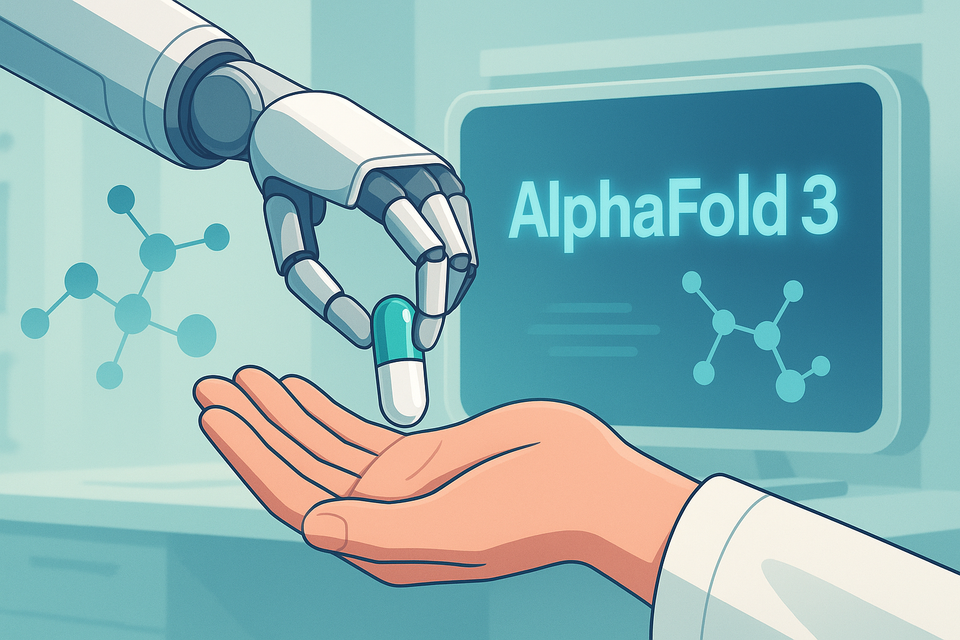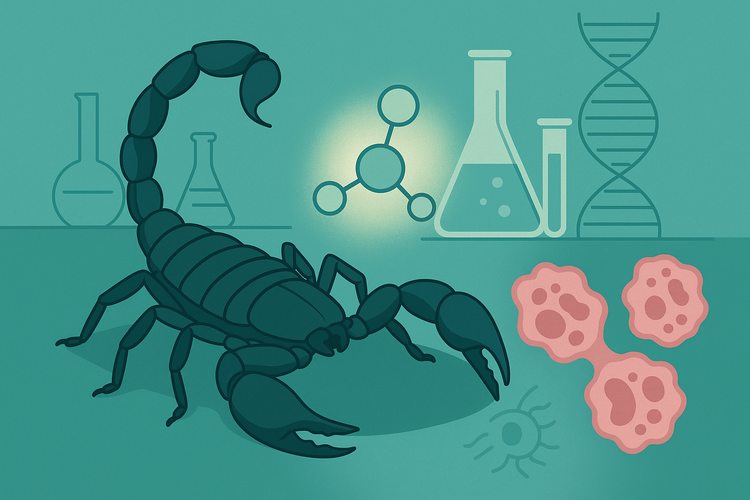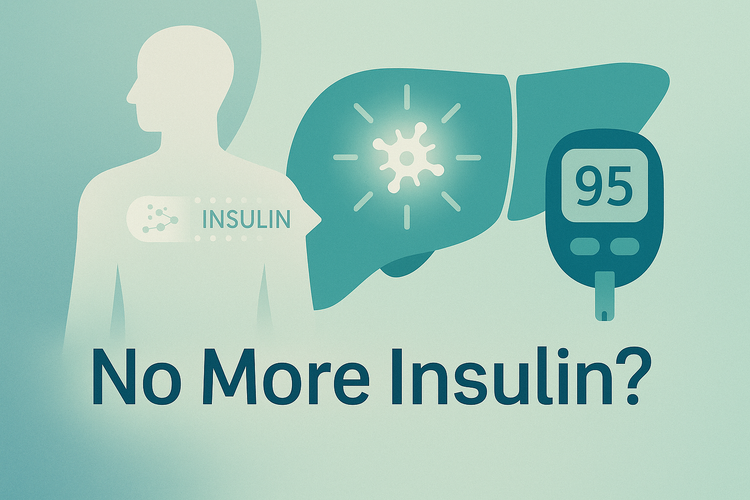Alphabet’s Quiet Revolution in Drug Discovery – AI Is Now Designing Cancer Treatments for Humans

Summary
Alphabet’s biotech spinout, Isomorphic Labs, is moving from simulation to clinical reality.
Its AI-designed cancer drugs will begin human trials by late 2025.
Backed by $600 million in funding and $3 billion in partnerships, this is no lab experiment — it’s the start of something much bigger.
Here’s what it means for healthcare, science, and the business of curing disease.
From Data to Drug: A Timeline to Watch
By the end of this year, Isomorphic Labs plans to start human trials of cancer drugs created entirely through AI.
Colin Murdoch, president of Isomorphic and also a senior executive at DeepMind, recently said,
“There are people in our London office designing cancer drugs with AI — right now.”
The company is actively hiring clinical staff, signaling that it’s entering the final pre-trial phase.
CEO Demis Hassabis, known for building the AlphaFold protein prediction model, had set this as a 2025 goal — and they’re on track.
How It Works: AlphaFold 3 and the New Drug Design Pipeline
AlphaFold once made headlines for predicting protein structures.
Now, its next-gen version — AlphaFold 3 — can model how proteins interact with DNA, RNA, and potential drugs.
Instead of starting in a lab, drug candidates now begin with computation.
Scientists input descriptions of molecules; AlphaFold 3 predicts how they’ll behave, down to the 3D level.
Early tests show 50% better accuracy, and for key classes of molecules, even double the precision of traditional methods.
Isomorphic’s approach lets researchers simulate thousands of compounds before ever mixing a drop in a test tube.
It’s not just faster — it’s fundamentally cheaper and more targeted.
The Money Behind the Mission
$600M in Fresh Capital
In March 2025, Isomorphic raised $600 million in funding, led by Thrive Capital and Alphabet’s own venture arm.
The money will scale their AI engine and push their first drugs into trial.
Nearly $3B in Pharma Deals
The company has already landed two major licensing deals:
- Eli Lilly: $45 million upfront + up to $1.7 billion in milestones
- Novartis: $37.5 million upfront + $1.2 billion in potential payments
These aren’t academic partnerships.
They’re bets that AI can reduce the risk — and cost — of drug development.
Why It Matters: The Drug Development Bottleneck
Here’s the problem:
- It takes 10–15 years to develop a new drug
- It costs $2.6 billion+
- And 90% of drugs fail before approval
Isomorphic believes it can:
- Shrink the timeline from 5 years to 18 months
- Cut costs by 50% or more
- Raise success rates from 10% to… well, “close to 100%”, according to Murdoch (okay, optimistic — but the ambition is clear)
If they succeed, drug development becomes more like software engineering — faster iterations, lower failure, and modular scalability.
The Fine Print: Regulation and Risks
But it’s not just code and compound libraries. There are real-world hurdles:
- No AI-designed drug has FDA approval yet
- The FDA issued new guidelines this year for evaluating AI-driven trials
- Regulators want transparency, traceability, and proof that models don’t just work — but work safely
There’s also the matter of explainability. AI doesn’t always show its work.
So, while pharma companies are excited, regulators are cautious — and for good reason.
Industry Watch: Who Else Is In This Race?
Isomorphic isn’t alone.
Other players in the AI drug race include:
- Insilico Medicine
- Exscientia
- Recursion Pharmaceuticals
- BenevolentAI
According to GlobalData, there are over 3,000 AI-discovered or repurposed drug programs globally.
But few have made it into human trials.
That’s why all eyes are on Isomorphic’s next move.
So… Will This Change Everything?
If this first human trial succeeds — if AI can go from hypothesis to therapy without wet-lab bottlenecks —
this will become the new standard in biotech.
Think about it:
- Lower costs
- Faster timelines
- Higher success rates
- Personalized, programmable medicine
And yes, one day you really might say:
“There’s a disease” — click — “and here’s the drug.”
Takeaways
- Isomorphic Labs may redefine how drugs are developed — faster, smarter, and cheaper
- The first AI-designed cancer drug trial will begin by late 2025
- Success would validate the trillion-dollar promise of AI in medicine
- But regulators, scientists, and investors will all be watching closely
- This isn’t science fiction anymore — it’s a new business model for curing disease
Sources
- YourStory - Google AI-designed drug human trial
- ClinicalTrialsArena - Isomorphic Labs prepares trials
- Fortune - DeepMind’s Grand Ambitions
- Reuters - Isomorphic raises $600M
- Medpath - AI drugs to enter trials
- BioIndustry - Novartis collaboration
- Google Blog - AlphaFold 3 model
- Isomorphic Labs - Rational drug design
- PRNewswire - $600M Funding Announcement
- TechCrunch - Eli Lilly & Novartis deals
- FDA - AI in Drug Development
- NYTimes - FDA and AI drug approvals
- BioSpace - Pharma partnerships
- NVIDIA Blog - Isomorphic Labs
- IsomorphicLabs.com - Official site



